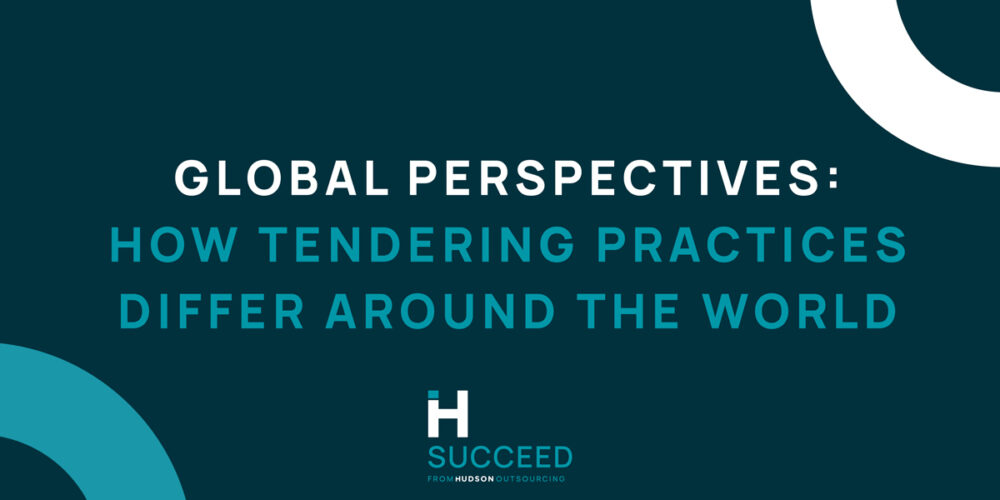Call Off Contracts and Tendering
Last updated: Jun 7, 2022 @ 4:05 pm
Background and context to call off contracts
Public sector procurement has evolved from being conducted solely through the simple process of individual tenders for individual contracts. More and more public sector organisations these days, are using “framework agreements.”
A framework agreement is effectively a list of pre-qualified suppliers who can bid for work around a certain group of goods and/or services – typically having tendered for their place on the framework.
Framework agreements can last anywhere from a few months to over a decade but typically last between two and five years.
Framework Structure
As part of the framework structure, buyers can then award individual contracts (call off contracts) for the delivery of specific goods and services. Each contract will have their own specific conditions, terms and clauses, throughout the duration of the framework.
Effectively, to be in with a chance of being hired, the first stage is to get onto a framework agreement. Typically this happens through a process of tendering where suppliers bid not to deliver work, but merely for a place on the framework.
Secondly, to actually start working with a buyer and to deliver goods and services, suppliers need to be selected to take part in the call off stage.
What is a call off contract?
Simply, call off contracts are individual contracts that fall under framework agreements.
Purchasing organisations may set stringent and bespoke conditions for a framework. Alternatively, boilerplate conditions which can then be modified as part of individual call off contracts; these will contain additional information specific to that contract.
Indeed, a call off contract will set out the terms and conditions for specific purchases on framework agreements.
This type of contract is an open arrangement under a framework. A purchaser can request that a supplier provide goods and/or services under prices, conditions and terms specified in each individual call off contract.
Typically, call off contracts are used for the purchase of materials. A call off contract is typically regarded as a purchase order which facilitates bulk orders over a period of time.
These are normally used in the construction and utility sectors where projects can last for months or even years.
Call off contracts and the DPS
A Dynamic Purchasing System (DPS) is similar to a framework in that it can last for many years. However, unlike a framework, buyers can tender for entry onto a DPS at any point if it’s live.
Therefore, a buyer would still be able to tender now, in 2020, for an open DPS which began in 2017. Should they win a place on the DPS, they will be issued with a contract by the buyer.
Because the DPS can span many years, it is organised into ‘rounds’. Each round has a deadline and when it expires, a new round (and supplier bid intake) is created. Typically, each round should be identical, unless there have been amendments to the tender documents following a clarification.
A framework, or DPS, is often lucrative, however, it does not firmly guarantee work under that framework. There are several factors which could affect success:
- Number of suppliers accepted onto the framework
- How competitively suppliers price their services
- Fluctuating requirements of work in the region.
For example, whilst work may be busy one year, market and social conditions could change the next. The first months of the coronavirus pandemic are a good example. In the initial two months, supply and demand for healthcare frameworks were heavy. There was an increased demand for frameworks and DPS’s which needed healthcare workers, medical equipment and PPE.
Comparatively, due to restrictive measures, there was a complete decrease in demand for hospitality sector products and services. Therefore, many hospitality industry suppliers on a framework or DPS would have struggled to win work.
A call off contract typically comes under three categories:
- Online submission and award
- Sealed bids
- Direct award.
Let’s look at these in more detail.
Pricing call off contracts
The buyer will generally settle the call off contracts with the supplier that has submitted either:
-
The lowest product prices
Although the price is often pre-determined, depending on the buyer, the lowest product prices can come out on top. These are often negotiated to include discounts for bulk orders. This can help some manage cash flows and orders. However, this is not always the case. In recent years, public procurement has had a focus on tenders with the most value for money.
-
The most economically advantageous tender (MEAT)
The contract is more often than not award to the MEAT within public sector procurement. This is to enable a level playing field and allows the procurer to get the best value for money. The MEAT does not always mean the cheapest bid wins, the buyer is looking at more than just the price.
A buyer may rank call off contracts on a range of factors including, but not limited to:
- Value for money
- Ability to meet timelines
- Approach to identifying and managing risk
- Equality, diversity, environmental and inclusion policies
- Innovation
- Accessibility.
Online submission
A buyer will contact all awardees on the DPS to notify them of the call-off contract. Following this, they will hold an online mini-competition. This can be via a portal or email submission.
Mini-competition advantages:
Mini-competitions within call off contracts offer a faster tender process. There’s no need to assess successful supplier’s capability and capacity to provide the buyer’s requirements. All of the pre-selection criteria have been checked such as economic financial standing, technical capability, health and safety, and so on.
There may still be the opportunity to have additional cost savings if the price has not been fixed.
Sealed bids
Instead of directly delivering the work, some buyers may require further bidding following contract award. These can be in the form of a ‘mini-competition’. Here, buyers can choose which work they want to bid for under the DPS. They would then enter a ‘mini-competition’ against other DPS awardees, to deliver their chosen services.
Unlike the DPS, mini-competitions have strict timelines by which to submit a bid. The buyer will typically provide the work to the bid with the lowest price. This is because all suppliers will be on an equal ‘quality’ standing through the DPS award.
The term ‘sealed bid’ means that no bidder is aware of their competitors offer. The buyer’s panel will open all mini-competition bids at the same time to assess who has the best offering
Depending on terms and conditions, some suppliers may be penalised if they do not bid for work following DPS award.
Direct award
A direct award is typically reserved for special occasions when the work required is very urgent. This could be an emergency situation where delays could risk health, safety, or other factors. For example, the provision of medical equipment. The buyer will directly select a supplier who is willing and able to deliver the specification.
Framework awards
Framework awards will detail the specifics of the call-off contract. Typically, a framework award will detail:
- Supplier details, such as name and business registration number
- Framework contract details (including Lot specifics)
- Contract deliverables
- The framework’s start and end date, including any extension periods
- The call-off order procedure (direct award, competition, etc.)
- Framework terms
- Framework prices
- All contracted staff details, such as name, title, phone number and email address.
This contract will be duly signed by the contracting authority and the supplier.
Why are they used?
The benefit of a call off contract is that they allow the supply of materials, goods and services to be secured over multiple delivery dates across the length of a project.
Hence, a buyer does not have to hold excess stock unnecessarily on site – instead, they can “call off” stock when it is required.
This generally facilitates the reduction of the risk of material loss and damage. It is likely to occur by taking delivery of an entire quantity of materials at once.
We have heard stories of clients taking delivery of all of their materials for a project on Friday, only to find on Monday morning, that the whole batch was damaged in a fire over the weekend. This would lead to the loss and replacement of all materials.
Of course, had the client, in this example, engaged in call off contracts to stagger the delivery of their materials, only a small proportion would have been damaged.
Staggering the delivery
Indeed, staggering the delivery of materials, as per a call off contract, allows buyers and suppliers to be more precise, careful and organised with the materials they use.
Moreover, staggering the delivery of materials helps reduce the cost of preliminaries such as rent, fencing, storage costs and security.
In simple terms, taking delivery of smaller proportions of parts and materials at a time means fewer people are needed to;
- Receive materials
- Organise materials
- Guard these materials.
Other reductions in cost, a smaller warehouse/plot of land is needed to store these, reducing rent and other associated bills.
This dispenses with the need for multiple purchase orders, rather, orders and invoices are raised as they are required until the contract is fulfilled, or the end of the order period is reached.
Call off contracts are typically negotiated with pre-determined pricing.
They often include discounts for bulk orders, making for a more cost-efficient service for buyers.
Call off schedules
Buyers may make specific schedules of requirements relating to the particular work needing delivered during call off. This could come under categories including:
Lots
Typically with frameworks and any DPS, they will be divided into works. Therefore, the schedules will be specific to each lot’s call-off contract. This will also be tailored to industry-specific requirements. For example, the healthcare sector may require more in-depth background checks than the construction sector.
Hudson Discover
We can help you secure a pipeline of work for your business via DPS and framework agreements. We understand how time-consuming the procurement process can be, and we want to help your business grow. Finding the time to search for relevant opportunities for your business can take hours that you don’t have. So, here at Hudson, we’ve made it a lot easier.
Hudson Discover’s sector-specific portals streamline the tendering process bringing you unique, private and public sector opportunities. The easy-to-navigate portals save you time when searching for the right tendering opportunity for your business.
Hudson Discover houses 11 sector-specific tendering portals.
Our Opportunity Trackers manually search and upload relevant sector-specific opportunities. You are able to filter the results by location, budget, keyword and more. This means no more missed opportunities due to unreliable CPV codes.
A subscription to one of our portals includes:
- A team of Opportunity Trackers sourcing unique, public and private tenders and leads from thousands of sources.
- An on-hand Account Manager that’s dedicated to answering any questions you may have.
- Discounted support from Hudson Succeed – our Bid Writing division.
- A daily email bulletin containing all the tenders that have been uploaded that day.
- 20-minutes of free live bid consultancy every month with our Bid Experts.
Upgrade to Discover Elite
Never miss a call off contract opportunity again with Discover Elite – even when you’re busy! We can save you even more time with our two upgraded packages. They are particularly useful if your business runs across two sectors such as Technology and Healthcare, for example.
The Ultimate Time-Saving Tool offers your business:
- Up to five bid breakdowns per month to help you make bid or no-bid
- An annual subscription to a maximum of two Discover portals of your choice.
- An Account Manager to help track the perfect tender opportunities for your business.
- Weekly phone calls with your Account Manager to discuss viable tendering opportunities.
- Award and pre-market engagement notices monitored on your behalf.
- Public and private buyer portal management. This includes registering, password management, downloading documents and assessing viability based on your bid strategy.
The Become a Pre-Bid Master package offers your business:
- All of the above.
- Up to seven breakdowns per month.
- The development of a bid strategy delivered by a Senior Bid Manager with a minimum of 5 years of experience. It will also be managed by our Global Bid Director.
Contact us for more information.
In conclusion
Call off contracts allow buyers to:
- Streamline their receipt of goods and services
- Better organise their projects by having fixed dates for service and delivery
- Reduce waste by doing away with the need to, for example, take delivery of all bricks for the construction of a house at once. Instead, this can be staggered across numerous deliveries throughout the life of the agreement.
These contracts also are a benefit to suppliers, who are guaranteed business over a long period of time.
This will help them manage the following:
- Books
- Cash flow
- Their orders
If you’re confused by procurement terminology, would like things to be a little clearer, or just want things explained in plain English, head over to Tender VLE. Our VLE platform is the UK’s first free, online, virtual learning environment, dedicated to tendering.
Further Support
We can support you write winning bids. Get in touch if you need an expert second pair of eyes to review your tender submission, help you cut through the jargon, or to take the weight off your shoulders completely. Speak to one of our Consultants or Bid Writers today to see how our expert team can help you tender for contracts.
Find more helpful tips and advice in our blogs. We cover topics including:







